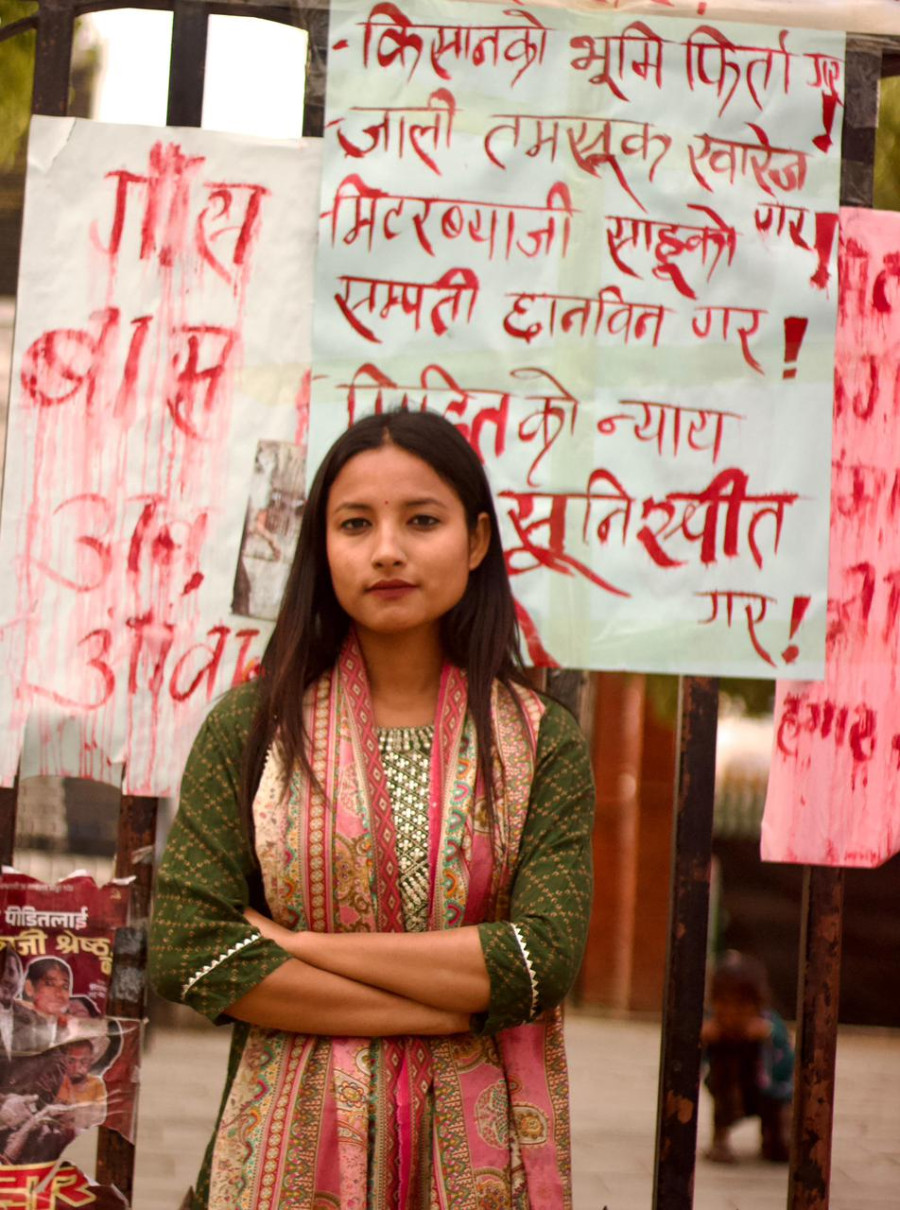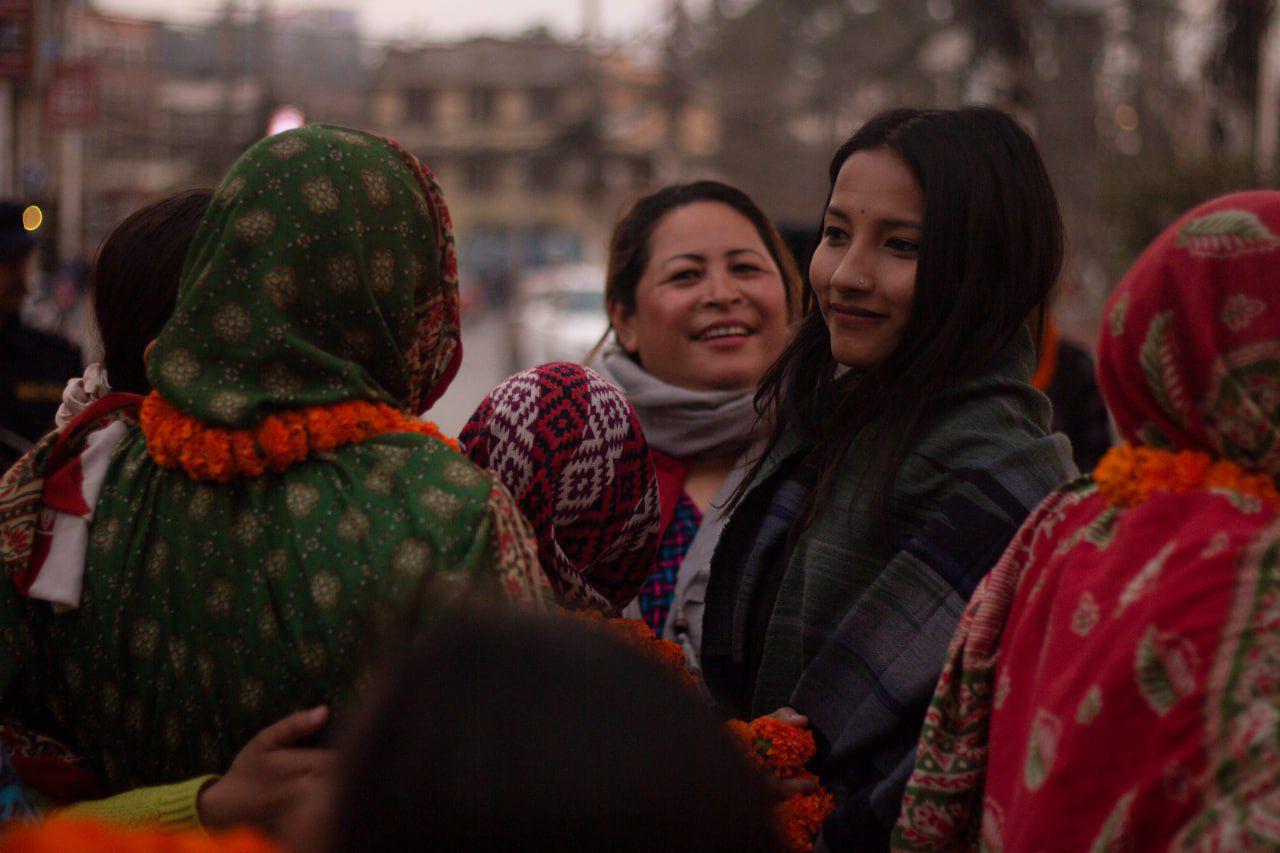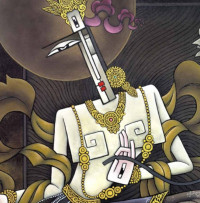Culture & Lifestyle
Rakshya Bam: Gen Z must keep questioning power
Growing up in Kailali, Bam found her voice early and stepped into activism. She now urges Nepali Gen Z to stay engaged in politics, vote and keep pushing for real change even after the streets are quiet.
Sanskriti Pokharel
Kailali shaped Rakshya Bam’s roots. The population was mostly Tharu, though many families from the hills had also migrated to the plains. She heard different accents and saw different traditions. This taught her early that despite the diversity and differences, we share the same soil beneath our feet.
She also understood that her province, Sudurpaschim, was labelled poor, backward and underdeveloped. Outsiders talked about Sudurpaschim with pity. Aid organisations described it as a place of struggle. Bam did not accept that. More than struggles, her home had culture, nature and possibilities. What it lacked was justice and attention from those in power. “Kailali is not poor. It is made poor,” she says.
After school, Bam moved to Kathmandu to pursue higher studies. This shift opened her eyes to inequality. The move felt like stepping into a different world. Life in the capital looked full of opportunities, while her hometown felt ignored. That contrast disturbed her. She began questioning why basic services were missing in her province. People had to rush to India for better health care. Students had to travel far from home to study. This did not feel like an accident to her. It felt like a system designed to leave people behind.
Bam remembers how political party banners would reach Kailali faster than school textbooks. Elections came often, yet nothing improved. Many youths left for India or the Gulf to survive. Their bond with the nation weakened with every departure.
The Tharuhat movement of 2015 was a turning point. Watching her community gather with urgency and strength opened her eyes to the political structure around her. Some voices were loud and central. Others, like hers, constantly fought to be heard. Bam started understanding terms like marginalisation, representation and discrimination. The political landscape of the nation suddenly felt very personal.
Bam’s academic journey was built on that awakening. After +2, she pursued a bachelor’s degree in social work. While volunteering, she learned that social service without advocacy changes little. Through her coursework, Bam understood how governance, policies and power shape lives. She says, “I did not become a party supporter. Rather, I became politically aware.”
Bam’s activism did not begin with big rallies or national headlines. It grew with blood donation campaigns and youth-led awareness events. Those early efforts introduced her to the struggles of people the system tends to overlook.
She later took part in campaigns focused on drug abuse prevention, gender based violence and child rights. Each initiative showed her the distance between policy and lived reality.
Bam’s work entered a new phase after completing her bachelor’s degree. Women’s rights in particular drew her attention because many cases involved delayed justice or pressure on survivors to stay silent. She recalls one case clearly—the rape and murder of Sumad Rani Tharu on May 12, 2023.
Bam joined activists who gathered in the street and demanded justice. She remembers long days of protests and tense conversations with authorities. Within four days, the accused was arrested. The case reminded her that organised pressure can speed up stalled justice. It gave her confidence that persistent advocacy could make institutions act.
Bam’s activism extended to urban economy issues, too. When Kathmandu Metropolitan City began seizing goods from street vendors in the name of management, she and other youth activists, including Iih, questioned the approach.

She and her team stood in front of the metropolitan office for 199 hours. They demanded a clearer system for vendors that allowed them to work without fear. After the ‘standing’ protest, forced crackdowns were reduced.
Her role grew even more visible during the Gen Z movement when youth demanded good governance, transparency and political accountability. Bam says those demands remain unchanged even though the situation has shifted.
The protests were met with force. Tear gas, water cannons, and bullets were used. Some families mourn lives lost during the confrontations. Bam says the movement was not about seeking power. Gen Z simply asked for government accountability under KP Sharma Oli. They wanted a leadership that respected constitutional values and public sentiment.
When the new interim government was formed, she saw cautious optimism among the youth. It was progress, but incomplete. Justice for victims remained the core concern. She believes real success will depend on a fair legal process, not quick arrests or political statements. “The new administration must address old corruption cases and ensure that the upcoming election is handled responsibly,” says Bam.
She expresses concern about declining interest in elections and argues that a movement that demands change must also engage in the democratic process. Critics will dismiss this movement as emotional noise if Gen Z stays back during elections. She wants Gen Z to help strengthen the environment for a free and fair vote.
She says internal differences among youth activists are expected. Diverse backgrounds create different viewpoints, but shared goals should unite them. Even if groups work separately, their focus should remain on long-term results.
Bam has little patience for political leaders who call the protests a show. “No apology has been issued. They still speak confidently in public. I question their morality and whether public memory is expected to fade that quickly,” she says.
Bam says the heart of Nepal’s political struggle is linked to basic needs. The majority of people in the rural area worry about food and shelter each day. They do not have the luxury of following power dynamics inside Kathmandu. Unless political change improves daily life in villages, it will remain superficial.
Bam believes citizens shape leadership. If society normalises corruption, leaders emerging from that society will reflect it. She also stresses the need for representation from outside Kathmandu Valley. “Centralised politics has dominated decision-making for decades and alienated many communities,” she says.
Bam’s activism sometimes invites online harassment. Anonymous accounts and those in power have called her US agent and tried to discredit her. She attributes this to low digital literacy and fast moving misinformation. She focuses instead on work that brings real outcomes.
When she participated in the USYC fellowship in 2022, she worked on promoting the Right to Information. She hopes similar opportunities come from the Nepali government in the future so that youth do not always rely on foreign programmes.
For Bam, the Gen Z movement opened a path that demands representation and integrity. Voting is a crucial part of that path. She says leadership does not appear from nowhere. Citizens create it through choices. A democracy functions only when people participate fully.
Her experience in ground level struggles shapes her political judgment. She values leaders who understand communities that rarely appear in headlines. Systemic issues remain, especially bureaucratic corruption. Yet she believes awareness is rising and authorities now understand that the public is watching closely.
Bam says change will take time. Organising youth is not easy. Yet she continues, convinced that Nepal can build a system where every citizen feels seen and heard. Her motivation comes from the people she has met along the way. “The fight continues,” says Bam.




 18.12°C Kathmandu
18.12°C Kathmandu















